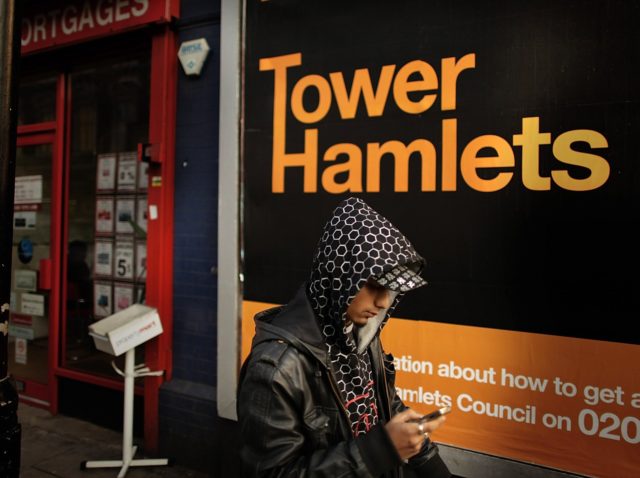Britain’s new Elections Act, which has just received Royal Assent, has finally made voter ID compulsory at polling stations — but questions remain about mail-in voting fraud.
The new legislation was widely opposed by left-wing political parties, including the Labour opposition, and activists, with allegations that the poor, ethnic minorities, and “trans and non-binary people” would be disenfranchised being widespread.
However, the government produced research showing that, in fact, “98 per cent of electors already own a photographic document that is on the broad list of acceptable types of identification” allowed under the Act, and the remaining two per cent will be entitled to Voter Cards which local government officials will provide free of charge.
Indeed, the very generous range of identification which will be accepted at polling stations, according to the government, will include:
- Various concessionary travel passes
- PASS cards
- Ministry of Defence identity cards
- Photocard parking permits issued as part of the Blue Badge scheme
- Driver’s licences
- Passports
- Free Voter Cards, provided by local authorities
Even expired identification will be accepted, provided “the photograph is of a good enough likeness to allow polling station staff to confirm the identity of the holder.”
“In our current electoral system, there is inexcusable potential for someone to cast another’s vote at the polling station. All you need to do is say a name and address when you go to vote,” the Cabinet Office admitted in its FAQ on the changes — contrary to the claims of anti-voter ID activist organisations like the Electoral Reform Society that “[v]oting is safe and secure in Britain”.
“Showing identification to prove who they are is something people of all walks of life already do everyday. It is a reasonable and proportionate approach to extend this practice to voting and give the public confidence that their vote is theirs, and theirs alone,” the FAQ added, noting that Northern Ireland already requires voter ID.
The Cabinet Office hinted that the reason anti-ID campaigners and politicians are able to claim that electoral fraud in the United Kingdom is low is in part because “[p]ersonation — assuming the identity of another person with the intention to deceive — is very difficult to prove and prosecute,” citing “frequent anecdotal reports of personation” as indicating that the problem may be more widespread than realised.
In particular, the statement highlighted the case of the Tower Hamlets mayoral elections in 2014, which were declared void by Election Commissioner Richard Mawrey at the High Court after four voters brought a case that Mayor Luftur Rahman had won office through “corrupt and illegal practices” under the Representation of the People Act.
Importantly, the four voters had to bring the case on their own, after both the Electoral Commission, which regulates British elections, and the police failed to act on fraud reports.
Rahman was not criminally charged even after Mawrey voided his election.
Gov is cracking down on electoral postal fraud👇
1️⃣ Requiring those using postal vote on long term basis to re-apply every 3 years.
2️⃣ Banning political campaigners from handling postal votes.
3️⃣ Introducing limit on no. of electors person may act as a proxy.#ElectionsBill pic.twitter.com/v6eBhJsGOL
— Robbie Moore MP (@_RobbieMoore) January 21, 2022
The same judge voided the elections of Labour councillors Shafaq Ahmed, Shah Jahan, Ayaz Khan, Mohammed Islam, Muhammed Afzal, and Mohammed Kaziwere in 2005, finding they had established a “vote-forging factory” in a disused warehouse to swing the result.
“Corrupt postmen had handed over sacks of postal ballots to Labour candidates, little boys had been paid to steal postal ballots from letterboxes, and bags full of postal votes had arrived late at the count, to be included without question in the poll,” the left-wing Guardian reported on the scandal, describing how “[b]ags of postal votes, which were clearly identifiable, were wheeled through the streets in sacks by temporary staff or carted to the count in plastic bags dumped in the boot of a car” prior to counting.
Once again, it took ordinary voters bringing a petition under the Representation of the People Act to expose the fraud, with the Electoral Commission again failing to act and the police actively criticised by the court for their “Olympian detachment” from the proceedings, despite obvious alarm bells like turnout increasing by up to 350 per cent in some wards.
However, the new Elections Act does not end vote-by-mail on demand — despite further accusations of postal voting fraud by the Brexit Party and others in a recent by-election to the House of Commons, for example — although the government does claim it “[d]eliver[s] on the government’s commitment to stop postal vote harvesting by changing the rules so that people can apply for a postal or proxy vote online through a new online system for absent voters.”
“These measures will introduce safeguards against the abuse of postal voting,” they insist.
Breitbart London contacted the Cabinet Office for a statement on how the legislation will increase the security of postal voting, and whether any further changes to the postal voting system are under consideration.
The Cabinet Officer referred Breitbart London to Kemi Badenoch’s Department for Levelling Up, Housing and Communities, which had not responded as of the time of publication.
‘Safe and Secure’? Britain’s Sordid History of Mail-in Voting Fraud https://t.co/jjr6lZqrY3
— Breitbart London (@BreitbartLondon) November 10, 2020
Follow Jack Montgomery on Twitter: @JackBMontgomery
Follow Breitbart London on Facebook: Breitbart London

COMMENTS
Please let us know if you're having issues with commenting.